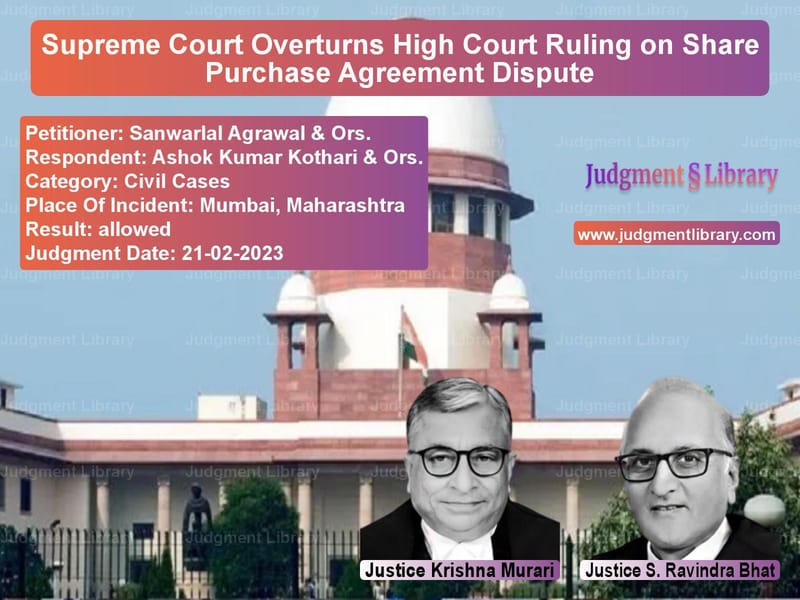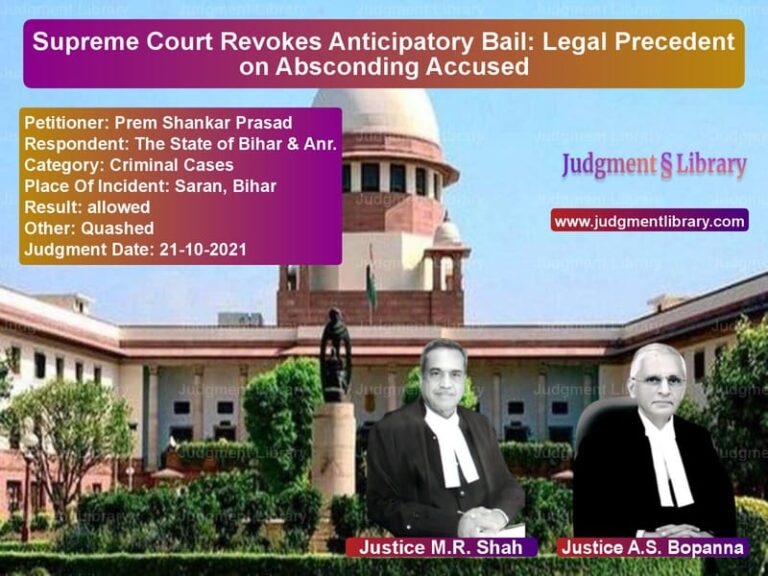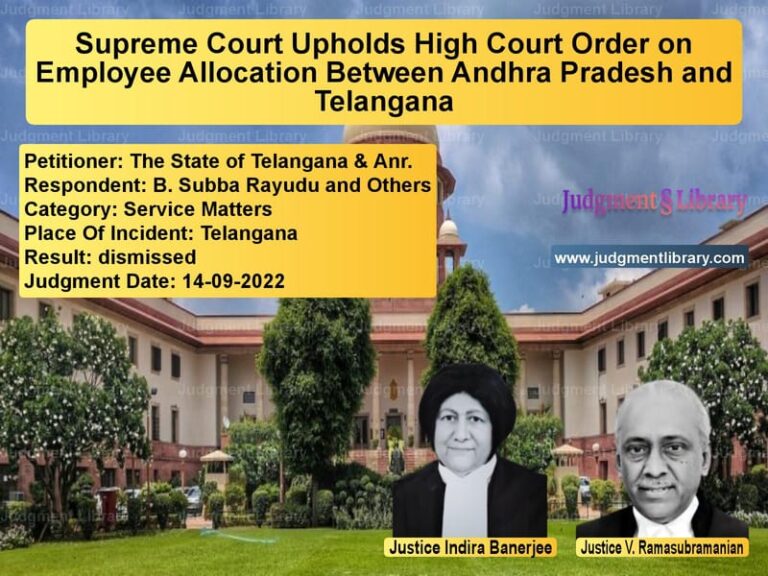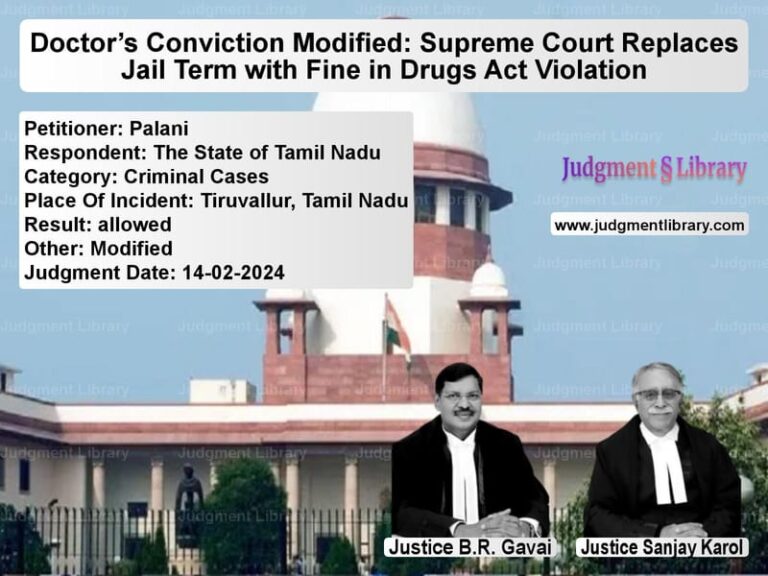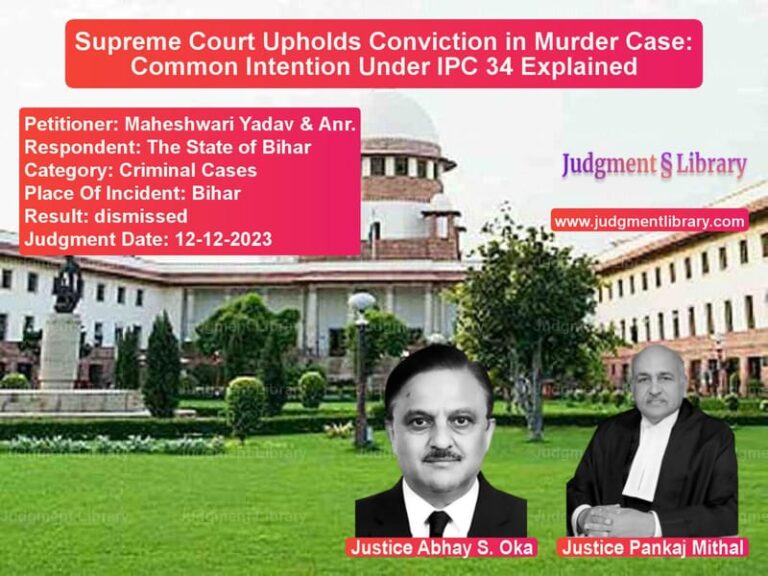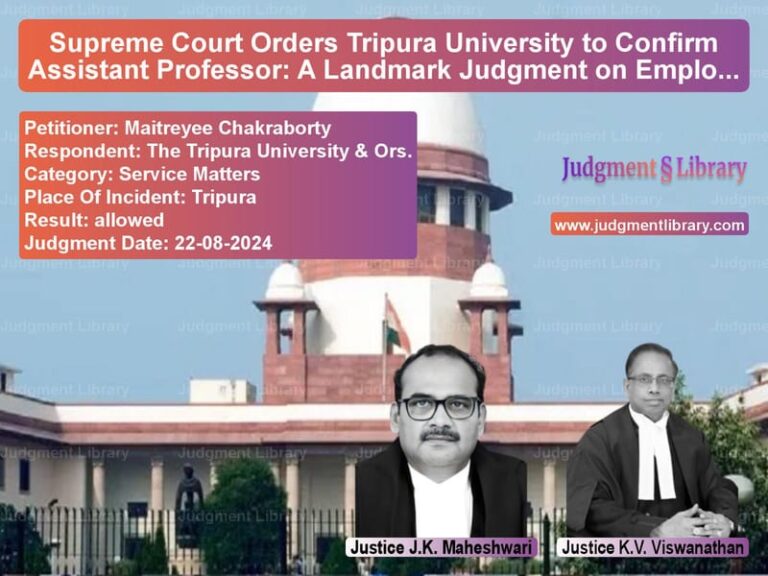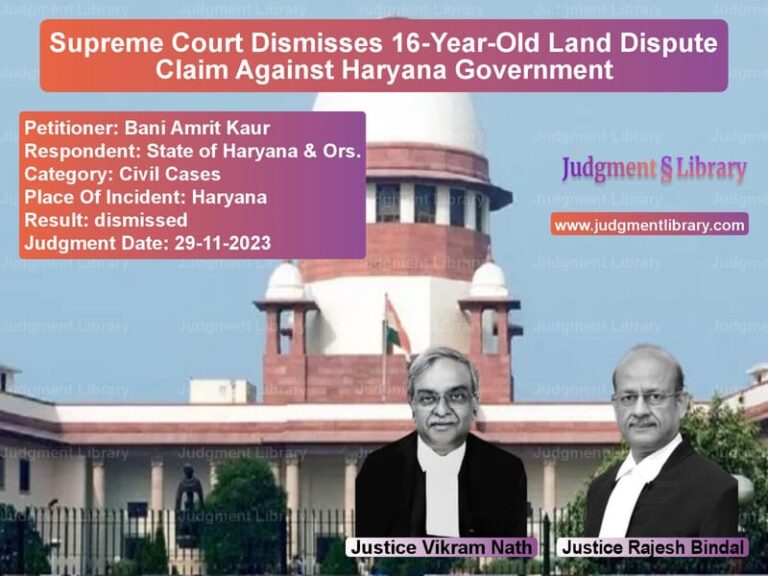Supreme Court Overturns High Court Ruling on Share Purchase Agreement Dispute
The Supreme Court of India recently delivered a crucial judgment in Sanwarlal Agrawal & Ors. vs. Ashok Kumar Kothari & Ors., addressing the interpretation and execution of a share purchase agreement. The Court overturned the High Court’s ruling, which had upheld the execution of a decree in favor of the respondents, and reaffirmed that an executing court cannot go beyond the terms of a decree.
Background of the Case
The dispute arose from a joint venture agreement signed in 2017 between the appellants (Sanwarlal Agrawal & Ors.) and the respondents (Ashok Kumar Kothari & Ors.) to operate a multi-specialty hospital in Malad, Mumbai. Both parties were equal shareholders and had contributed ₹10 crores each as interest-free loans.
On March 27, 2019, the respondents (Kotharis) bid to buy the appellants’ (Agrawals) 50% shareholding for ₹36.75 crores. The terms of the sale were documented via an email on March 28, 2019, stating:
- ₹1.83 crores (5%) to be paid as a token amount.
- 50% of the consideration within 45 days, allowing the Kotharis to take over the project.
- The remaining 45% to be paid within 120 days.
- Failure to meet deadlines would lead to forfeiture of amounts paid and a reversal of ownership at the appellants’ bid price of ₹35 crores.
While an initial payment of ₹1.83 crores was made, a subsequent email from the Kotharis on March 29, 2019, included a new term: that ₹10.29 crores of the total amount would be treated as repayment of the Agrawals’ interest-free loan.
The Agrawals rejected this modification, leading to a legal dispute.
Legal Proceedings and High Court Ruling
The Kotharis filed Commercial Suit No. 844/2019 in the Bombay High Court, seeking a declaration that the March 28, 2019, agreement was binding and requesting specific performance.
On August 5, 2019, the single judge of the High Court granted a decree on admission in favor of the Kotharis. This decree directed the Agrawals to:
- Transfer their 50% shareholding to the Kotharis.
- Sign all necessary documents.
- Hand over original title deeds and resign as directors.
Subsequently, both parties initiated execution proceedings. The single judge, interpreting the decree, held that the total ₹36.75 crores included the ₹10.29 crores loan repayment. The Division Bench of the Bombay High Court upheld this ruling.
Supreme Court’s Observations
The Supreme Court examined whether the High Court erred in allowing the execution court to modify the decree’s terms. Key observations included:
“The executing court cannot go behind the decree. It must take the decree as it stands.”
The Court analyzed the following issues:
- The decree’s terms did not mention the loan repayment.
- The March 28, 2019, email, forming the basis of the decree, did not include the ₹10.29 crores adjustment.
- The agreement between the parties was limited to the share transfer and did not address loans.
The Court further emphasized:
“A decree for specific performance must be executed strictly within its terms. The High Court’s ruling added conditions not agreed upon.”
Final Judgment
The Supreme Court ruled in favor of the Agrawals, stating:
- The High Court’s order incorrectly interpreted the decree to include loan repayment.
- The execution court exceeded its jurisdiction by modifying the decree.
- The decree should be enforced strictly as per its original terms.
Accordingly, the appeals were allowed, and the High Court’s ruling was set aside.
Implications of the Judgment
This ruling reinforces critical legal principles:
- Limits of Execution Courts: An execution court cannot alter or reinterpret a decree.
- Strict Enforcement of Decrees: Decrees for specific performance must be executed within their terms.
- Contractual Clarity: If a term is not explicitly included in an agreement, courts cannot infer it.
Conclusion
The Supreme Court’s decision in Sanwarlal Agrawal & Ors. vs. Ashok Kumar Kothari & Ors. sets a vital precedent in contract law and execution proceedings. By overturning the High Court’s interpretation, the ruling ensures that courts cannot modify decrees beyond their explicit terms, thereby upholding the integrity of contractual agreements.
Petitioner Name: Sanwarlal Agrawal & Ors..Respondent Name: Ashok Kumar Kothari & Ors..Judgment By: Justice Krishna Murari, Justice S. Ravindra Bhat.Place Of Incident: Mumbai, Maharashtra.Judgment Date: 21-02-2023.
Don’t miss out on the full details! Download the complete judgment in PDF format below and gain valuable insights instantly!
Download Judgment: sanwarlal-agrawal-&-vs-ashok-kumar-kothari-supreme-court-of-india-judgment-dated-21-02-2023.pdf
Directly Download Judgment: Directly download this Judgment
See all petitions in Contract Disputes
See all petitions in Property Disputes
See all petitions in Debt Recovery
See all petitions in Judgment by Krishna Murari
See all petitions in Judgment by S Ravindra Bhat
See all petitions in allowed
See all petitions in supreme court of India judgments February 2023
See all petitions in 2023 judgments
See all posts in Civil Cases Category
See all allowed petitions in Civil Cases Category
See all Dismissed petitions in Civil Cases Category
See all partially allowed petitions in Civil Cases Category

